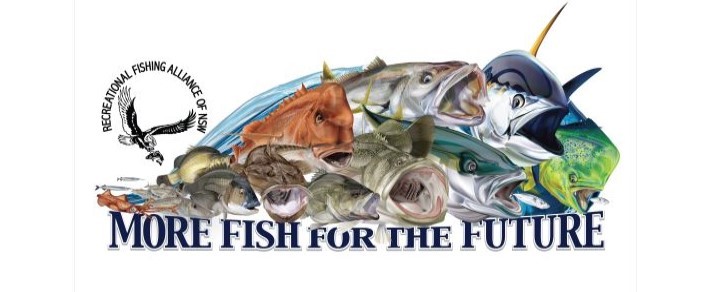The Recreational Fishing Alliance of NSW (RFA) supports recreational fishing and the harvesting of wild food by fishers, as long as there is sustainable use of the fishery, care for the environment and respect for other members of the community.
The RFA is committed to:
- protecting fish and their habitats to support healthy fisheries.
- an inclusive environment for all anglers, so that they feel safe, respected and valued.
- mitigating the effects of climate change on recreational fisheries.
- transparent and cost-effective government management of recreational fisheries, and the prudent use of anglers’ funds from the NSW Recreational Fishing Trusts.
- increasing and improving access to our waterways.
Our policies and activities are based on the following principles:
- Partnering with government departments, agencies and political parties to ensure that we have a healthy and sustainable recreational fishery.
- Scrutiny of the procedures and activities of government departments and agencies to give fishers oversight of how the recreational fishery is managed and how recreational fishers’ funds are spent.
- The highest standards of financial probity for the use of public monies and recreational fishers’ licence fees, and rigorous project evaluation and assessment of funded projects.
- Equitable fishing opportunities and representation for all fishers, including those who are culturally diverse, disabled or disadvantaged.
- Informing anglers of their rights and obligations in a safe and healthy recreational fishing community in which all people are treated with dignity and respect.
- Encouraging fishers to develop their potential and contribute their knowledge, skills and abilities for the greater benefit to the community.
In 2023 the RFA is calling for:
- A Recreational Fishing Statutory Authority to oversee recreational fisheries management and provide diverse and inclusive representation of anglers.
- A review of the Recreational Fishing Trust Funds and how these are spent. Trust Fund expenditure, overheads and administration charges by NSW Fisheries must be reviewed to ensure that the recreational fishing licence fees we pay are used prudently.
- A review of the five NSW marine parks by the Advisory Committees and key stakeholders for comments and changes, before being sent out for wider community consultation. The current process has failed to gain widespread support, and the recreational fisher positions on these committees have not been filled. Before introducing further bans on fishing in any of the NSW marine parks, stakeholders must be consulted on the marine park zoning plans—this includes conservationists, and recreational, commercial and indigenous fishers.
- A review of how the Environmental Protection Agency and Water NSW deal with water quality issues. The RFA wants new assessments on the impacts of the dumping of raw and treated sewage and waste in NSW estuaries, rivers, bays and offshore.
- A review of all management legislation. The Acts and Regulations governing recreational fishing should be reviewed to protect and sustain the fishery and recreational fishers’ rights, and allow for simple rules appropriate for casual fishers. The needs to be a review of the Fisheries Management Act 1994 to recognise the right to fish recreationally, and provide in legislation to compensate recreational fishers for loss of access in any Recreational Fishing Haven or similar area. Amend the Marine Estate Management Act 2014 to explicitly recognise and reinstate the right to fish recreationally, as under the previous Marine Parks Act 1997.
- The Office of Sport in NSW should officially recognise recreational fishing as a sport.
- Review the Rock Fishing Safety Act 2016 and approve all forms of effective rock fishing safety attire. Ensure that all fine revenue collected under the Act is returned to rock fishing safety education.
- Increase access to all our waterways with safer boat ramps, parking opportunities, land-based options such as fishing platforms, and fairer access to national and marine parks in NSW.



